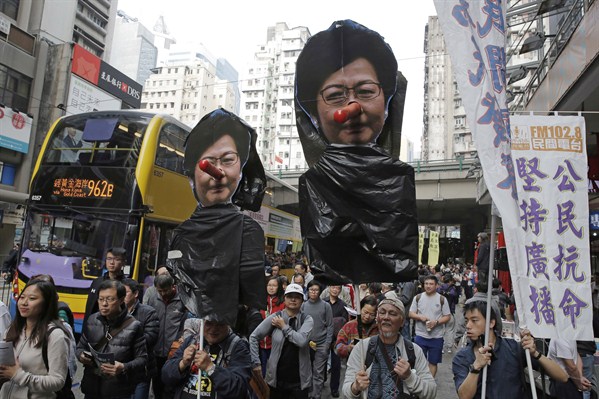On Jan. 27, officials in Hong Kong disqualified Agnes Chow, a young pro-democracy activist, from running for office in a March by-election. The move sparked public outrage, coming less than two weeks after a Hong Kong court sentenced another activist, Joshua Wong, to jail for a second time for his role in the 2014 pro-democracy protests, known as the Umbrella Movement. In an email interview, Stephan Ortmann, an assistant professor of comparative politics at City University of Hong Kong, discusses the evolution of the pro-democracy movement and what steps the central government in Beijing and the government in Hong Kong are taking to quell it.
WPR: Where does Hong Kong’s pro-democracy movement stand today, in terms of public support and organization, compared to the recent past?
Stephan Ortmann: The pro-democracy movement currently faces a fundamental internal crisis because its goal of representative democracy has become unrealistic. This has created a growing sense of pessimism among the otherwise sympathetic public, leading to lower turnout at protests. The reason for the crisis is primarily China’s inherent opposition toward representative democracy. As China has grown more confident with its own one-party governance system, it has become less tolerant toward Hong Kong’s system.

